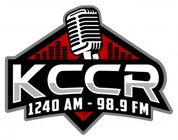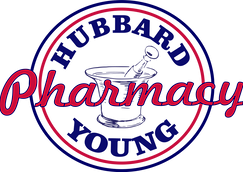Combatting suicide requires immediate crisis intervention combined with ongoing mental health support and precise medication management. In Clemson, SC, residents can access local hotlines, counseling services, and expert pharmacy care to reduce risk and enhance resilience. This article explains warning signs of suicide and steps to help someone in crisis, details key crisis resources, and highlights Hubbard Young Pharmacy’s role in referrals. It then covers mental health medication guidance, explores conditions linked to suicide risk, maps local support networks, and outlines how to secure timely antidepressant refills. By uniting crisis resources with pharmacist-led medication support, Clemson residents gain comprehensive pathways to hope and healing.
What Are the Key Suicide Prevention Resources Available in Clemson, SC?
Suicide prevention resources in Clemson blend community hotlines, university counseling, and first-responder partnerships that offer 24/7 support and reduce barriers to care. Early access to these services can stabilize individuals in crisis and direct them toward long-term mental health management.
What Are the Warning Signs of Suicide to Recognize Early?
Key suicide warning signs help in early detection and timely intervention:
Expressing hopelessness or feeling trapped.
Talking about being a burden to others.
Withdrawing from friends, family, or activities.
Increased substance use or self-harm behaviors.
Recognizing these signals can prompt immediate help and reduce risk.
How Can You Help Someone Experiencing Suicidal Thoughts?
Supporting someone in crisis involves clear steps to ensure safety and connection:
Listen without judgment and validate their feelings.
Encourage contacting 988 or a trusted mental health professional.
Stay with them or arrange for a responsible companion.
Remove means of self-harm whenever possible.
These actions foster a lifeline of hope and bridge to professional care.
Which Local Crisis Support Services and Hotlines Are Available?
Clemson residents can access multiple crisis services to obtain rapid assistance:
988 Suicide & Crisis Lifeline for immediate free support.
National Suicide Prevention Lifeline - South Carolina Hospital Association
Suicide Prevention Resources
The 988 Suicide & Crisis Lifeline provides 24/7, free and confidential support for people in distress.
Clemson University Counseling and Psychological Services (CAPS) for students.
Pickens County mental health outreach teams offering mobile response.
What Role Does Hubbard Young Pharmacy Play in Suicide Prevention?
Below is how Hubbard Young Pharmacy integrates into crisis support and referral pathways:
Medication Review: Confidential assessment of prescriptions → Identifies risk factors and optimizes therapies.
Referral Coordination: Connections to local therapists → Streamlines access to specialized mental health care.
Over-the-Counter Guidance: Safe advice on supplements → Reduces interactions with psychiatric medications.
Patient Education: One-on-one counseling sessions → Enhances understanding and reduces stigma.
By offering these services, the pharmacy bridges crisis intervention and ongoing care, reinforcing community safety nets.
Building awareness of these resources sets the stage for medication-based support that reinforces long-term resilience.
How Does Hubbard Young Pharmacy Support Mental Health Medication Management?
Comprehensive medication management at Hubbard Young Pharmacy combines expert drug knowledge, adherence support, and patient education to promote stability and reduce relapse in mental health conditions. This approach ensures that drug therapies deliver maximum benefit with minimal risk.
What Are Common Mental Health Medications and Their Uses?
Pharmacists often dispense three main classes of psychiatric drugs:
Antidepressants (SSRIs/SNRIs): Treat depression and anxiety.
Anxiolytics (Benzodiazepines/Buspirone): Manage acute anxiety and panic.
Mood Stabilizers (Lithium, Antipsychotics): Regulate bipolar and psychotic symptoms.
These medications underpin treatment plans for depression and anxiety.
How Can Side Effects and Drug Interactions Be Managed Safely?
Understanding side-effect profiles and interaction risks is essential.
Sertraline may cause nausea or headaches, and these can be managed by taking the medication with food and staying hydrated.
Alprazolam often leads to drowsiness, so it is best to schedule doses before rest periods.
Lithium can cause tremors or increased thirst, and management includes maintaining consistent fluid intake and monitoring lab work.
What Strategies Improve Medication Adherence for Mental Health?
Adherence strategies support consistent intake and treatment success:
Use pill organizers or blister packaging.
Set smartphone reminders for each dose.
Link medication to daily routines like meals.
Enlist family or caregiver check-ins.
These tactics enhance routine and reduce missed doses.
How Does Personalized Pharmacist Counseling Enhance Mental Wellness?
One-on-one counseling with a pharmacist clarifies dosing schedules, addresses concerns about side effects, and destigmatizes medication use. This collaborative education boosts confidence in treatment and fosters a supportive therapeutic alliance.
Empowered by these management techniques, patients sustain effective therapies and lower their risk of crisis.
What Are the Most Common Mental Health Conditions Affecting Suicide Risk?
Depression, anxiety, bipolar disorder, and ADHD encompass conditions with elevated suicide risk due to mood instability, impaired coping, and impulsivity.
Mental Illness and Suicide Risk
Many mental health disorders, such as depression, bipolar disorder, and certain anxiety disorders, are associated with an increased risk of suicidal ideation and attempts.
Risks of Suicide and Mental Disorders
Borderline personality disorder, anorexia nervosa, depression, and bipolar disorder have the highest suicide risks.
What Are the Symptoms and Treatments for Depression and Anxiety?
Depression is characterized by persistent sadness and low energy, and it is typically treated with SSRIs, psychotherapy, and lifestyle changes. Anxiety presents as excessive worry and restlessness, with common treatments including SNRIs, cognitive behavioral therapy (CBT), and relaxation techniques.
Addressing these conditions through combined therapies improves mood regulation and reduces suicidal ideation.
How Does Bipolar Disorder Impact Mental Health and Suicide Risk?
Bipolar disorder alternates between depressive and manic episodes, with mood extremes that can trigger impulsive behaviors. Treatment relies on mood stabilizers and psychotherapy to maintain emotional balance and prevent crisis escalation.
What Support Is Available for ADHD and Other Related Conditions?
ADHD and related disorders benefit from medication plus behavioral coaching:
Structured routines and organizational tools.
Stimulant medications under close monitoring.
Skills training for focus and impulse control.
Combining these interventions addresses diverse needs and reduces suicide risk.
By understanding these conditions and treatments, individuals can partner with pharmacists and clinicians for tailored care.
Where Can You Find Local Mental Health Services and Support Groups in Clemson, SC?
Local mental health services in Clemson include private practices, university clinics, and peer-led support groups that foster connection and continuity of care. Mapping these options empowers individuals to access the right help at each stage.
Which Therapists and Counselors Serve the Clemson Community?
Residents can choose from licensed professionals specializing in:
Cognitive Behavioral Therapy for anxiety and depression.
Family or couples counseling for relational support.
Trauma-focused therapy to address past distress.
These practitioners accept various insurances and sliding-scale fees to reduce cost barriers.
What Community Programs and Support Groups Are Accessible?
Peer-led networks and nonprofit initiatives offer group support:
Mental health peer support groups for shared experiences.
NAMI South Carolina chapter meetings for education.
YMCA wellness workshops promoting coping strategies.
Participation builds social connection and resilience.
How Can Hubbard Young Pharmacy Facilitate Referrals to Mental Health Professionals?
Our pharmacy team maintains an up-to-date directory of local therapists, psychiatrists, and community programs. Patients receive personalized recommendations and direct contact information, eliminating guesswork in finding qualified providers.
Mapping these local options connects community members with trusted care partners and builds a seamless support network.
How Can You Access Antidepressant Refills and Medication Services Near You?
Local pharmacies offer the convenience of same-day refills, prescription synchronization, and in-store counseling that streamline ongoing treatment. Proximity and trust foster adherence and timely care.
What Are the Benefits of Using a Local Pharmacy for Mental Health Prescriptions?
Choosing a “pharmacy near me” provides:
Immediate access to same-day refills and urgent medications.
In-person counseling to address questions and concerns.
Personalized packaging and reminders for improved adherence.
These advantages promote continuity of therapy and peace of mind.
How Does Hubbard Young Pharmacy Ensure Timely Medication Refills?
Hubbard Young Pharmacy offers automated refill reminders, synchronized refill dates for multiple prescriptions, and a same-day pickup option. This system reduces gaps in treatment and reinforces stable medication routines.
What Should You Know About Managing Your Antidepressant Refills Safely?
Helpful practices for safe refills include:
Confirming dosage and expiry dates before each pickup.
Communicating any new medications or supplements to the pharmacist.
Avoiding sudden discontinuation without professional guidance.
These steps safeguard against interactions, lapses in therapy, and potential relapse.
By combining local pharmacy convenience with robust support services, Clemson residents gain clear pathways to sustainable mental health care.
Clemson’s network of crisis hotlines, counseling programs, and pharmacist-led medication management creates a multilayered defense against suicide. Recognizing warning signs and accessing 988 or CAPS provides immediate relief, while Hubbard Young Pharmacy’s expertise ensures safe, effective medication support. Understanding common conditions, local resources, and practical adherence strategies empowers individuals to remain connected and resilient. Together, community and pharmacy partnerships transform prevention efforts into a continuous journey of hope and healing.




